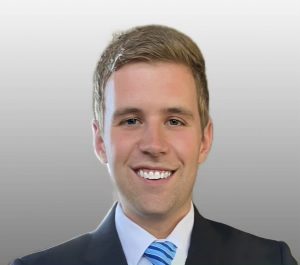Now accepting nominations!
SPRO is pleased to offer two awards for individuals who have made notable contributions to the field of palliative radiation oncology through clinical care, patient advocacy, education, or research.
Lifetime Service Award
This award recognizes an individual whose service to the field over a period of a decade or more has resulted in an indelible transformation and advancement of the field of palliative radiation oncology.
Rising Star Award
This award recognizes an individual who is either a trainee or within the first two years of an academic appointment whose work shows notable promise to be transformative to the field of palliative radiation oncology.

-
Nominations are considered every year, with awards to be presented at the SPRO meeting during ASTRO
-
Please send your nominations (which can be brief and no more than 500 words), including your name, the nominee’s name, the award you are nominating them for, and a description of their qualifications to admin@spro.org by 10/11/2021
FORT Update – Palliative Radiation Perspective
Patients with lymphoma have historically been excluded from palliative radiation oncology trials given that these tumors are more radioresponsive than other solid tumors. Though radiation dose/fractionation schemes used to palliate lymphoma are often extrapolated from those used for solid tumors, we highlight here unique considerations for palliation of patients with indolent, non-Hodgkin B-cell lymphomas.
FORT (Follicular Radiotherapy Trial), a phase 3 randomized trial, compared whether low-dose radiation therapy (RT) of 4 Gy in 2 fractions was non-inferior in local control to the standard 24 Gy in 12 fractions for patients with either follicular (FL) or marginal zone lymphoma (MZL). Target sites, rather than patients, were randomized 1:1, stratified by histology, treatment intent, and treatment center. The non-inferiority margin for local progression at 2 years was pre-specified as ≤10%, corresponding to a hazard ratio (HR) of 1.37. Patients were treated with involved-field RT, rather than the more recently adopted involved-site RT (Illidge, 2014), and most patients received 3D RT.
From 2006 to 2011, 614 target sites from 548 patients were randomized across 43 centers in the UK. Initial results were reported by Hoskin et al. in 2014 at a median follow-up of 26 months, demonstrating that 4 Gy was inferior to 24 Gy with 70 local progressions in the 4 Gy arm and 21 local progressions in the 24 Gy arm (HR of 3.42; 95% CI 2.09-5.55, p<0.0001) (Hoskin, 2014). More recently, the authors reported long-term results at a median follow-up of 74 months (Hoskin, 2021). The findings remain unchanged, with a 5-year local progression-free rate of 70% after 4 Gy and 90% after 24 Gy (HR 3.46, 95% CI 2.25-5.33, p<0.0001), confirming the inferiority of 4 Gy. There was no difference in 5-year OS: 78% (4 Gy) and 75% (24 Gy).
Despite FORT being a negative trial, it nonetheless provides important, prospective data on the efficacy of 4 Gy with an eye for palliation. This modest dose has impressive results: the rate of complete or partial response was 81%; about two-thirds of patients had durable (5-year) local control; and even in those who progressed, the site was controlled for a median of 12 months. As expected, acute grade 3-4 toxicity was 1% with 4 Gy.
Given that most patients are diagnosed with FL in their 60’s, that the clinical trajectory is indolent, and that advanced stage FL and MZL are not curable, treatment selection is based on minimizing both acute and late toxicity as goals are focused on quality of life. Furthermore, 4 Gy does not burn bridges, allowing future retreatment with an additional 4 Gy in the minority of patients that have a local recurrence (Saleh, 2020). Meanwhile, two-thirds of patients will have been spared from receiving a higher dose. This is particularly attractive for sensitive locations, such as the orbit where a dose of 24 Gy often causes chronic symptoms (dry eye, keratitis, etc.) that may negatively impact quality of life (Goda, 2011).
Taken together, for patients with incurable stage III-IV disease 4 Gy offers a quick and effective approach to provide local control to a site that is symptomatic or likely to become symptomatic. While often delivered over 2 fractions, 4 Gy in a single fraction has also been reported (Haas, 2003) and can be useful for patients with logistical issues or other barriers to treatment. All in all, we agree with Hoskin et al. that “in the palliative setting, 4 Gy of radiotherapy might provide a pragmatic treatment for local symptom control.”
— Kareem R. Fakhoury, MD and Yolanda D. Tseng, MD, MPhil
Congratulations to Dr. Tracy Balboni!
ASCO honors Dr. Tracy Balboni with the 2021 Walther Cancer Foundation Palliative and Supportive Care in Oncology Endowed Award.
Dr. Tracy Balboni, MD, MPH, FAAHPM, was honored with the 2021 Walter Cancer Foundation Palliative and Supportive Care in Oncology Endowed Award. Established in 2017, this award recognizes a leader who has made a significant contribution to palliative and supportive care in oncology through the prevention, assessment and management of cancer- and treatment-related suffering.
Dr. Balboni is a Professor of Radiation Oncology at Harvard Medical School, Program Director of the Harvard Radiation Oncology Program, and Clinical Director of the Dana-Farber/Brigham and Women’s Supportive and Palliative Radiation Oncology Service. She is truly a leader within the field of palliative radiation oncology, establishing one of the first dedicated palliative radiation oncology services as well as serving as a mentor to countless students, residents, and junior faculty. Her research has contributed to significant knowledge within the role of spirituality in serious illness as well as advanced the field in palliative radiation treatment. Her leadership and support have inspired countless other physicians and researchers to pursue careers dedicated to palliative oncology.
SPRO would like to congratulate Dr. Balboni for this well deserved honor and her ongoing service to the SPRO executive committee.
See full coverage of the story at the ASCO Daily News here: https://dailynews.ascopubs.org/do/10.1200/ADN.21.200548/full/
See more information about the Walther Cancer Foundation Palliative and Supportive Care in Oncology Endowed Award and Lecture here: https://www.asco.org/special-awards/wcfa
Resident Member Executive Committee
The SPRO executive committee would like to welcome our newest member, Dr. Jordan Hill, who joins as our resident member. We were thrilled by the number of applications for this spot. Thank you to all who applied and submitted a nomination.
Meet Dr. Jordan Hill, resident member of the SPRO executive committee:
I completed my undergraduate degree in exercise science at Brigham Young University (BYU), Utah. During my studies I met my lovely wife, Heather, who is from Gilbert Arizona. I am a dual citizen (Canadian/American) and as a result my wife and I took the opportunity to go North to Canada for medical school after completing our undergraduate degrees. I completed medical school and am currently a PGY3 radiation oncology resident at the University of Alberta in Edmonton, Canada. My wife and I have three wonderful children (one boy and two girls) ages 6, 4, and 1.
Why Radiation Oncology?
Radiation oncology is a technically challenging field in medicine with a complex patient population that I find rewarding. I also enjoy that the field of oncology is ever changing and non stagnant which affords opportunities to continue to learn and improve the way in which we treat patients. I have also always felt that there is so much more to life than a person’s occupation and I appreciate the work life balance that a career in radiation oncology affords.
Why were you interested in joining the SPRO executive committee?
I feel that it is of great importance to seek out opportunities to work with and learn from the leaders of our field of medicine. The SPRO executive committee is full of physicians who have and continue to make vital contributions to palliative radiation oncology. The opportunity to learn from them while making meaningful connections will be of benefit to me moving forward in my career. Finally, SPRO is a platform which will allow me to promote evidence-based practice and to promote palliative radiation oncology research. I believe patients deserve quality of care and that the future of radiation oncology depends on quality research that often starts in a palliative setting.
Have you gained any new hobbies during the Pandemic?
I have always prioritized time for hobbies; pre-pandemic I enjoyed golfing, ice hockey, and running. I am not able to engage in many of these hobbies in this pandemic environment, however, this has allowed me to invest more time in my family which is my favorite hobby. This is a picture of our kids this past Halloween and it is a visual representation of some of the good memories we have formed despite the limitations imposed by the pandemic.
Do you have a favorite quote?
If you are not in over your head, how can you know how tall you are?
– TS Elliott
Upcoming CPROG Virtual Event
SAVE THE DATE!
The Canadian Palliative Radiation Oncology Group (CPROG), led by Dr. Kristopher Dennis and now formally under the umbrella of the new Supportive Care Committee of the Canadian Association of Radiation Oncology (CARO), will be hosting a virtual event on November 17th. Please email admin@spro.org if you would like to request the Zoom invitation.
Topic: CTG SC.24 / TROG 17.06: A Randomized Phase II/III Study Comparing 24Gy in 2 Stereotactic Body Radiotherapy (SBRT) Fractions Versus 20Gy in 5 Conventional Palliative Radiotherapy (CRT) Fractions for Patients with Painful Spinal Metastases





